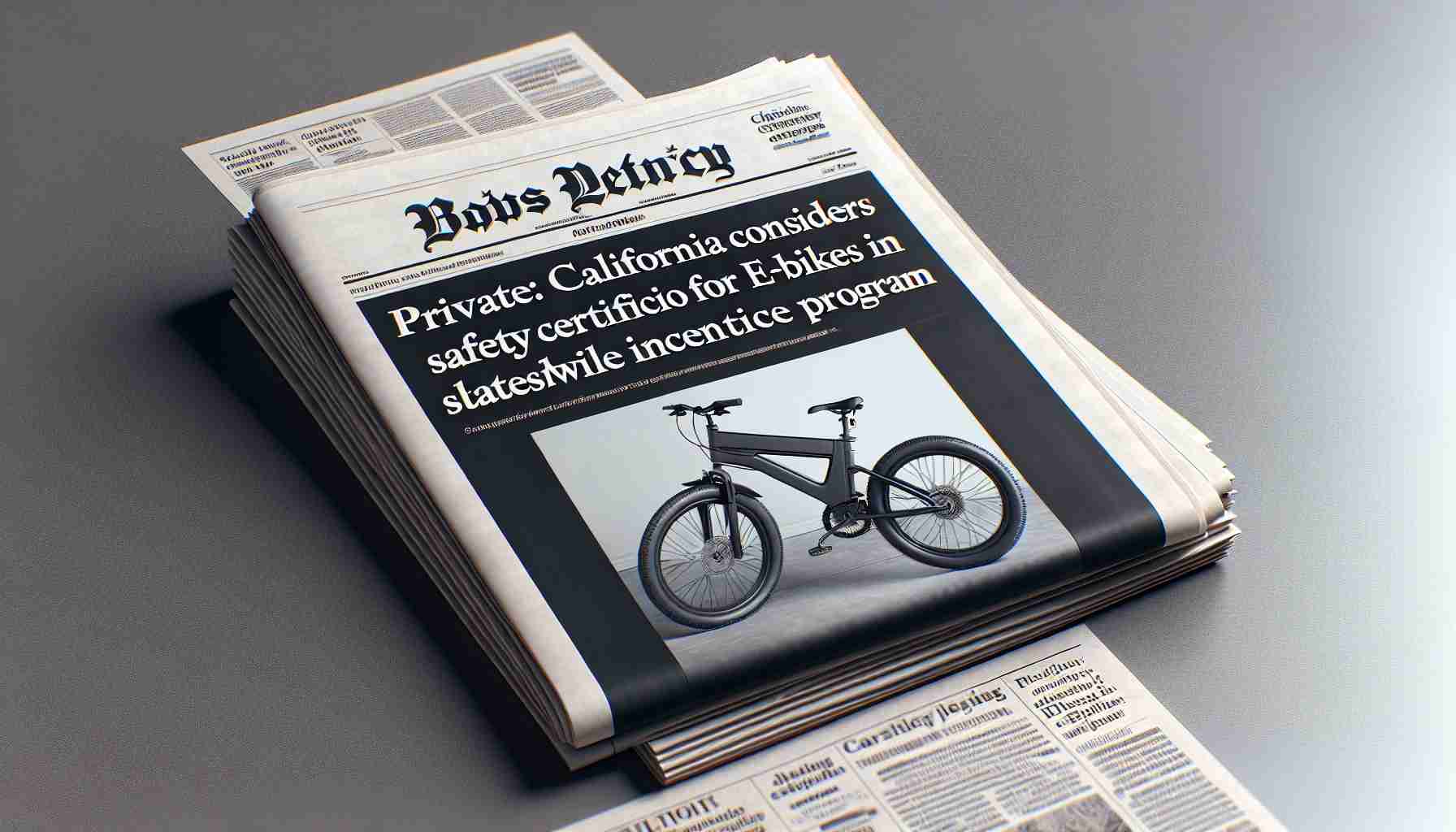The California Air Resources Board (CARB) is currently working on a new e-bike incentive program that may require eligible e-bikes to have batteries certified for safety. The proposed certification requirements have received mixed reactions from e-bike retailers and sellers.
While some retailers expressed concerns about the increased cost and time required to obtain certification, others applauded the move, citing the importance of prioritizing safety. The proposed change could also lead to higher incentive amounts, as certified e-bikes tend to be more expensive.
In addition to battery certification, there were suggestions to include requirements for hydraulic brakes and to provide training on how to ride and repair e-bikes. These suggestions highlight the importance of addressing various safety aspects to ensure the success and adoption of e-bikes.
CARB is also focusing on outreach for the program, aiming to engage community-based organizations for assistance in spreading awareness. They plan to provide mini-grants to these organizations to conduct thorough outreach and provide basic information about the program. This approach is intended to reach populations that may not typically participate in CARB programs.
For potential applicants, it is important to prepare the necessary documentation, including proof of residency and income. The project website is expected to have a user profile and log-in feature for applicants to get a head start, but it is not currently available. Applicants should keep checking for updates, as the launch windows are likely to close quickly once opened.
Eligible applicants are California residents with an annual household income at or below 300 percent of the federal poverty level. Priority applicants, who have lower incomes or live in disadvantaged or low-income communities, are eligible for slightly higher incentives. The total available funds for the program amount to $31 million, with a portion reserved for priority applicants.
While the exact amount of the incentives is still being determined based on feedback, the current proposal suggests vouchers worth $1,750 for standard, cargo, or adaptive e-bikes, and $2,000 for priority applicants.
CARB plans to open six launch windows, but there have been suggestions to reduce the number of windows and conclude them by the end of the year. The implementation of a lottery system for applications has also been suggested.
Overall, the inclusion of safety certification requirements and the focus on outreach highlight the commitment to ensuring the success and safety of e-bikes in California’s incentive program. The program aims to make e-bikes more accessible and affordable for residents, promoting clean transportation alternatives.
The e-bike industry has been experiencing significant growth in recent years, with California being one of the key markets driving this trend. According to market forecasts, the e-bike market in California is projected to grow at a CAGR of over 7% from 2021 to 2027. This growth can be attributed to factors such as increasing concerns about environmental sustainability, rising fuel prices, and the desire for healthier transportation options.
However, despite the growing popularity of e-bikes, there have been concerns regarding safety. This is why the California Air Resources Board (CARB) is working on a new e-bike incentive program that focuses on safety certification for e-bike batteries. The proposed certification requirements aim to ensure that only safe and reliable e-bikes are eligible for incentives.
While some e-bike retailers and sellers have expressed concerns about the increased cost and time required to obtain certification, others believe that prioritizing safety is crucial for the success of the industry. Certified e-bikes may have higher price points, but they offer consumers the assurance that they are investing in a safe and reliable product.
In addition to battery certification, there have been suggestions to include requirements for hydraulic brakes and to provide training on how to ride and repair e-bikes. This comprehensive approach to safety highlights the industry’s commitment to addressing all aspects of e-bike safety.
CARB is also actively working on outreach efforts to ensure that the e-bike incentive program reaches a wide range of communities. They plan to engage community-based organizations and provide them with mini-grants to conduct outreach activities and disseminate information about the program. This approach aims to reach populations that may not typically participate in CARB programs, thus promoting inclusivity and accessibility.
For potential applicants, it is crucial to prepare the necessary documentation, such as proof of residency and income, to be eligible for the incentives. The project website, once available, is expected to have a user profile and log-in feature to facilitate the application process. It is important for applicants to regularly check for updates, as the launch windows for the program are expected to fill up quickly.
Eligibility for the e-bike incentives is based on annual household income, with priority given to applicants with lower incomes or those living in disadvantaged or low-income communities. The total available funds for the program amount to $31 million, with a portion reserved for priority applicants.
While the exact incentive amounts are still being determined based on feedback, the current proposal suggests vouchers worth $1,750 for standard, cargo, or adaptive e-bikes, and $2,000 for priority applicants. These incentives aim to make e-bikes more affordable and accessible to Californians, promoting clean and sustainable transportation alternatives.
CARB plans to open six launch windows for the e-bike incentive program, but there have been suggestions to reduce the number of windows and conclude them by the end of the year. This would provide a more streamlined and efficient application process. Some have also suggested implementing a lottery system for applications to ensure fairness and equal opportunities for all applicants.
Overall, the e-bike incentive program in California demonstrates a commitment to promoting the adoption of safe and sustainable transportation options. The industry’s focus on safety certification and outreach efforts aims to ensure the success and widespread adoption of e-bikes in the state. By making e-bikes more affordable and accessible, the program plays a crucial role in reducing carbon emissions and promoting a greener future.







